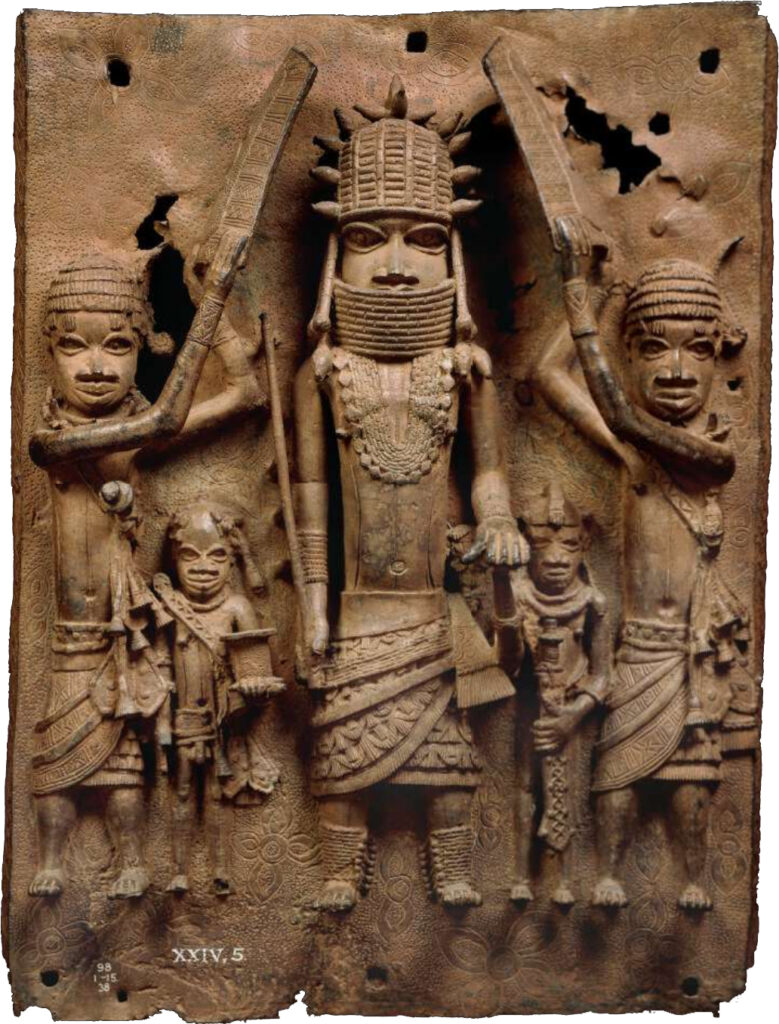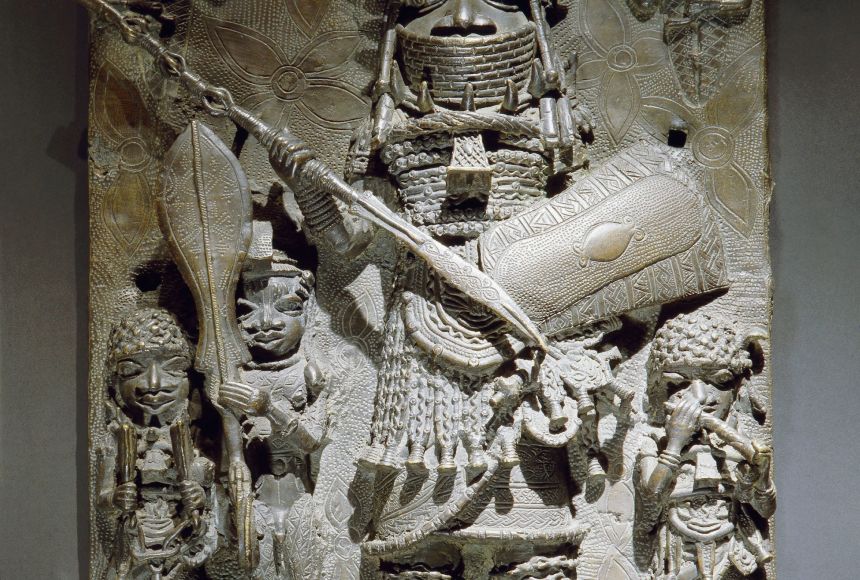
The historical kingdom of Benin was established in the forested region of West Africa in the 1200s C.E
Tradition tells us that the Edo people became dissatisfied with the rule of a dynasty of semi -mythical kings, the ogisos, and in the 13th century they invited Prince Oranmiyan of Ife to rule them. His son Eweka is regarded as the first oba, or king, of Benin, though authority would remain for many years with a hereditary order of local chiefs.
In the late 13th century, power began to assert itself under the oba Ewedo and was firmly established under the most famous oba, Ewuare the Great (who reigned c. 1440–80). Ewuare The Great expanded the empire, established a hereditary succession to the throne and vastly expanded the territory of the Benin kingdom, which by the mid-16th century extended from the Niger River delta in the east to what is now Lagos in the west. Ewuare also rebuilt the capital which is now present-day Benin City. The oba became the supreme political, judicial, economic, and spiritual leader of his people. To honor him, his people would build cults that utilized human sacrifices in serving him.

Ewuare was succeeded by a line of strong obas, chief of whom were his son, Ozolua the Conqueror (c.1481–c. 1504) and Ozolua’s son Esigie (early to mid-16th century), who enjoyed good relations with the Portuguese and sent ambassadors to their king. Under these obas Benin became a highly organized state. Its numerous craftsmen were organized into guilds, and the kingdom became famous for its ivory and wood carvers. Its brass smiths and bronze casters excelled at making naturalistic heads, bas-reliefs, and other sculptures. From the 15th through the 18th century Benin carried on an active trade in ivory, palm oil, and pepper with Portuguese and Dutch traders, for whom it served as a link with tribes in the interior of western Africa. It also profited greatly from the slave trade. But during the 18th and early 19th centuries the kingdom was weakened by violent succession struggles between members of the royal dynasty, some of which erupted into civil wars. The weaker obas sequestered themselves in their palaces and took refuge in the rituals of divine kingship while indiscriminately granting aristocratic titles to an expanding class of nonproductive nobles. The kingdom’s prosperity declined with the suppression of the slave trade, and, as its territorial extent shrank, Benin’s leaders increasingly relied on supernatural rituals and large-scale human sacrifices to protect the state from further territorial encroachment. The practice of human sacrifice was stamped out only after the burning of Benin City in 1897 by the British, after which the depopulated and debilitated kingdom was incorporated into British Nigeria. The descendants of Benin’s ruling dynasty still occupy the throne in Benin City (although the present-day oba has only an advisory role in government).


